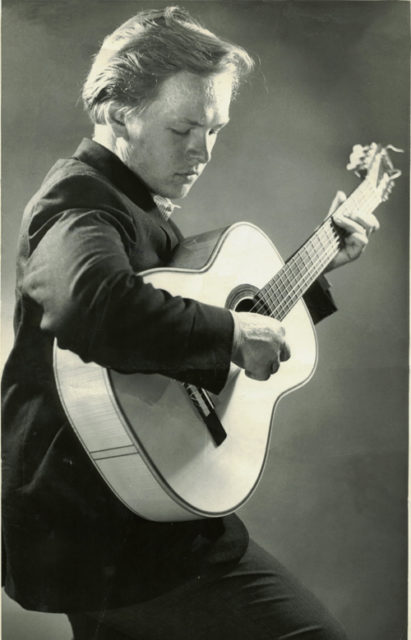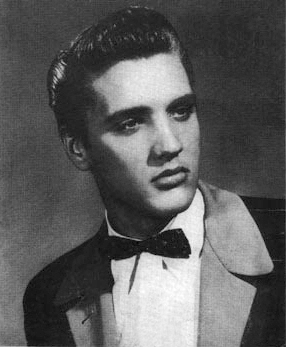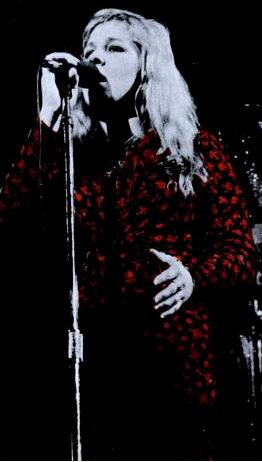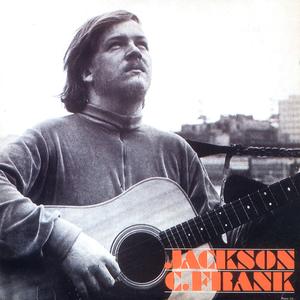Many wonder what the world would have been like if some of it’s most creative, intelligent and courageous people had had a little more luck in their lives.
It is interesting to think about how many forgotten heroes there might have been in the world. One of them is the talented folk musician Jackson C. Frank. It is certain that a lot of hard luck stories can be found all around us, but the forgotten life of this folk legend really takes bad luck to a new level.

Unimaginable tragedies and misfortunes plagued the musician during his life. Frank’s tale is the most tragic of all the could-have-beens and it is also the least known out there. From Buffalo, New York, his talent and reputation was crystallized in only one album from 1965, and particularly through his song, “Blues Run The Game”, his undying legacy.
Tragically, when Frank was eleven years old, a furnace exploded at his school in New York. Fifteen of his fellow students died in the fire, along with his then girlfriend, to whom he would later dedicate a song in her name, “Marlene”).
The freak accident caused a lifetime of physical difficulties, as he suffered burns to over fifty percent of his body, causing extensive damage to his parathyroid glands. This resulted in an unregulated build-up of calcium in his body, leading to severe joint pains.
His interest in music was sparked when a music teacher, Charlie Castelli visited Frank in hospital and gave him a guitar to help distract him during his recovery.
Frank was very much influenced by Elvis Presley’s music and even had a chance to meet him in Memphis, Tennessee with his mother in 1957. The event was a meet and greet for the children injured in the fire.

Frank was given insurance money of $110,500 for his injuries in the fire, giving him enough to leave the US on a boat to England and start a new life there. Nobody knew that the shy son of a test pilot would become a musician whose songwriting could be compared to the ranks of Bob Dylan himself.
With a soothing, rich voice, and a mellow guitar-picking technique, Frank’s songwriting was truly brilliant.
In the London folk scene, among the many beatniks, he was becoming a rising star. Through his then girlfriend Sandy Denny, Frank became acquainted with John Renbourn, who recalls his gentle character with acute detail.

“He told me he came from Buffalo and that it was a good place to come from. And then he started to tell me that he’d been in a fire”. Renbourn mentions him as a promising musician. He remembers Frank as “rather quiet and self-effacing, not overly sensitive, but he wasn’t a falling-on-your-arse-and-get-wrecked kind of guy, he worked at his craft, conscious of doing really great stuff”.
Frank recorded his only legacy, his debut album in London in 1965. It was produced by the folk legend, Paul Simon.
Despite being an only album, his self-titled debut quickly became a folk standard, and the songs were honored and covered by many leading musicians such as Simon & Garfunkel, Nick Drake, Bert Jansch, Counting Crows, and John Meyer.

After the record, Frank was increasingly plagued with deepening difficulties with his mental health, including depression and schizophrenia, with which he was later diagnosed.
A crippling writer’s block and the many mental issues prevented him from writing songs and continuing to make music. The biggest blow to Jackson C. Frank was ultimately the death of his son, marking the end of his career.
Frank died in 1999 of pneumonia, penniless and homeless, an unfitting state of affairs for an outstanding musician and songwriter.

Unheard recordings which Frank made with a friend from the Woodstock era, Jim Abbott, were released posthumously, along with many other obscure recordings from the 70s.
Read another story from us: “Waterloo” was not the first Eurovision song from ABBA
Many artists respect and recognize his contributions to music, including Tim Buckley, Bert Jansch, and Paul Simon, who all regard him as a true folk legend and a very friendly fellow above all.
“Everyone liked him”, Renbourn remembers, “When Bert Jansch got married, he built a great big display cabinet which was full of family photos, and in the middle of it was a photo of Jackson Frank. He really, really was a great guy”.
